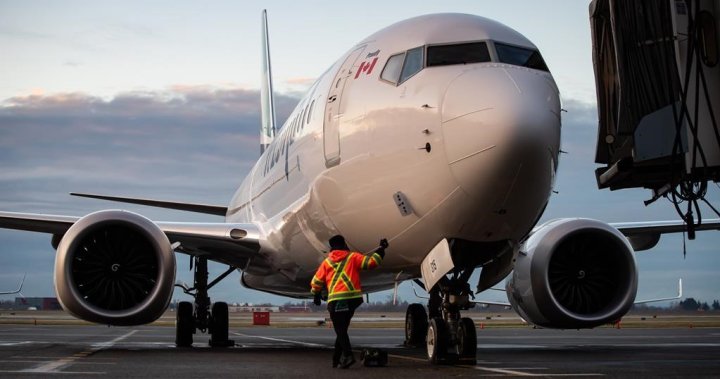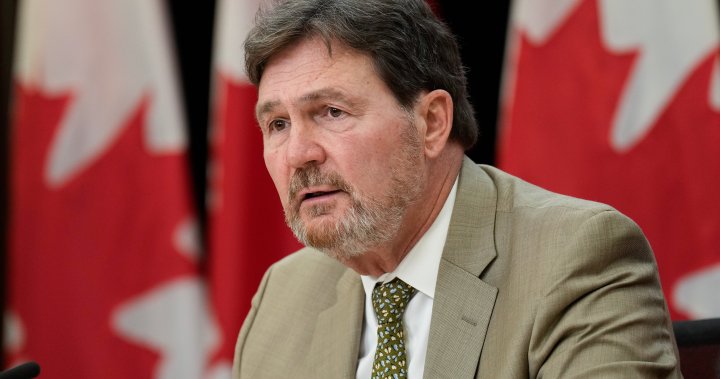A whistleblower at Boeing’s largest supplier is going public with concerning claims that he would find hundreds of defects on Boeing 737 fuselage parts each day during his time there as a quality inspector.
Santiago Paredes worked for Spirit AeroSystems for 12 years, until he resigned in 2022. He told CBS News and the BBC in exclusive interviews that he had enough of Spirit management telling him to conceal and downplay manufacturing issues in his reports.
“If quality mattered, I would still be at Spirit,” Paredes told CBS News. “It was very rare for us to look at a job and not find any defects.”
Kansas-based Spirit AeroSystems used to be a part of Boeing, but was spun off into a separate company in 2005. The company manufactures plane parts that are sent to Boeing for final assembly. Notably, Spirit produces the door plug panel for the Boeing 737 Max 9s. The company, and Boeing, came under intense scrutiny in January after a door plug panel blew off a 737 Max 9 operated by Alaska Airlines in mid-air.

Another whistleblower, Joshua Dean, who worked as a quality engineer at Spirit died early this month at 45 years old after a sudden illness. He too claimed to have noticed manufacturing defects on Boeing 737 planes.
Dean’s death came two months after Boeing whistleblower John Barrett was found dead of an apparent suicide a day after testifying against the planemaker.
Paredes told CBS News that he developed a fear of flying after working at Spirit. The outlet says it reviewed photos of dented fuselages and a wrench left behind in a supposedly finished part, set to be delivered to Boeing.
Breaking news from Canada and around the world
sent to your email, as it happens.
“Knowing what I know about the 737, it makes me very uncomfortable when I fly on one of them,” he said.
Paredes said he felt pressured by Spirit management to ignore manufacturing defects so the company could produce more plane parts faster. He alleges he earned the nickname “Showstopper” from his bosses, because defects Paredes would flag in his reports would end up delaying deliveries.
In particular, Paredes flagged that some 737 parts would come off the production line missing key fasteners, hardware that joins pieces of the plane together. He’s concerned that the defects could cause safety issues with some of Boeing’s planes.
“It’s a recipe for disaster,” Paredes told CBS. “It was just a matter of time before something bad happened.”

Paredes noticed the safety culture at Spirit worsened in 2018, when Spirit went from producing about 30 fuselages per month to over 50. In 2022, he said he received an email from his bosses to be less specific about where he was finding issues with plane parts in order to speed up his inspections.
He emailed his managers back, saying he found the request was “unethical” and put him “in a very uncomfortable situation.”
“I was put in a place where if I said no, I was gonna get fired,” Paredes recounted. “If I said yes, I was admitting that I was gonna do something wrong.”
In retaliation, he says, Paredes was demoted from his position as a team leader. He ended up filing a formal complaint with company HR and he was found to be wrongfully demoted. Paredes was reinstated to his former position, but he said, at that point, he no longer wanted to work for Spirit.
“It takes a toll on you and I was tired of fighting,” said Paredes. “I was tired of trying to do the right thing.”
In his interview with the BBC, Paredes claims that Boeing “knew that Spirit was sending fuselages with many defects.”
“Spirit was wrong for sending defective fuselages, but at the same time, Boeing was also wrong for accepting them,” he said.
In a statement to CBS, a Boeing spokesperson said that the planemaker has long employed a team to inspect fuselages built by Spirit and fix defects. Outgoing CEO Dave Calhoun told CNBC that increased oversight of Spirit’s operations have reduced the defect rate in fuselages by about 80 per cent.

Paredes traces the safety culture issues at Spirit back to Boeing. He said that many leaders in the company stayed on after Spirit split from Boeing back in 2005.
“I think the culture was bad already,” he said. “Over time it just became worse.”
Spirit told the BBC that it “strongly disagree(d)” with Paredes’ allegations against the company. “We are vigorously defending against his claims.”
Spirit spokesman Joe Buccino told CBS that the company remains “committed to addressing concerns and continuously improving workplace safety standards.”
“We encourage all Spirit employees with concerns to come forward, safe in knowing they will be protected.”
Boeing maintains that the 737 Max is safe.
On Thursday, two Boeing 737 planes were involved in accidents within a matter of hours, with one plane’s tire bursting during landing in Turkey, while another plane skidded off the runway in Senegal.
© 2024 Global News, a division of Corus Entertainment Inc.







